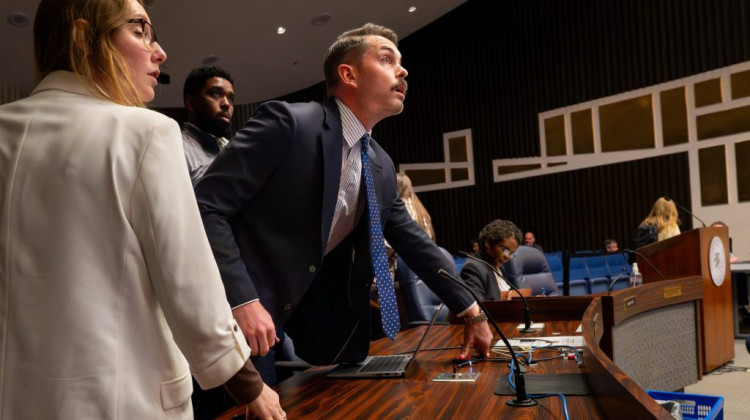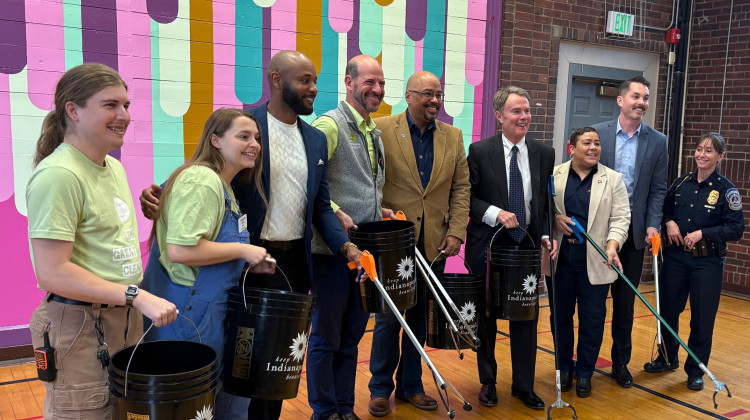
A bill killing the Indianapolis Blue Line died suddenly today after lawmakers and IndyGo reached a compromise
FILE PHOTO: WFYIA bill that would effectively kill the Indianapolis Blue Line died suddenly Thursday after a compromise was reached between the state legislature and local leaders.
The bill targeted Indianapolis and could have scuttled over one hundred million dollars in federal funds. Specifically, the bill put a one year moratorium on dedicated lanes deemed essential for the Blue Line while a one year study could be conducted on their effectiveness.
Residents and local officials begged state lawmakers for months not to pass the legislation - saying it represented a clear overreach of the state into local issues.
In a statement, Speaker of the House Todd Huston (R-Fishers) said lawmakers had found common ground with both IndyGo and city officials by agreeing to update bus line plans. “Blue Line plans to prioritize traffic flow while still making improvements.”
Huston added that while the legislation would not move forward, a broader conversation about road funding would.
Speaking with reporters, Huston said dedicated lanes were never a big issue for him.
“For us it was about keeping four lanes open. If they have a bi-directional lane that’s a dedicated lane, frankly I don’t care,” he said. “For us it was always about how do you keep as many of those vehicle lanes open across Washington Street.”
The meeting between lawmakers and local officials took place the night before Thursday’s expected vote on the bill.
“I think you guys know I much prefer to deal with issues outside of legislation,” Huston said.
Democrats said the compromise means federal funds will likely stay intact.
Both IndyGo and Indianapolis Mayor Joe Hogsett released statements thanking the speaker for negotiating on the issue and thanking residents for showing up throughout the session to advocate for public transportation.
Senator Aaron Freeman (R-Indianapolis) had introduced versions of the bill in previous sessions arguing the dedicated lanes required for the Blue Line were “not the way of the future.”
Some businesses testified during this year's session that they feared construction on the Blue Line could impact traffic to their stores. Some of those businesses recanted their testimony soon after.
An overwhelming amount of testimony in both the House and Senate featured residents, local officials, and transportation administrators from other cities who advocated against the legislation.
In response to news that his bill would not move forward, Freeman said he never wanted to bring the measure to the General Assembly but “when IndyGo wouldn't negotiate, I was left with no choice but to propose this bill.”
"My goal with Senate Bill 52 has never been about ending public transit,” Freeman wrote in a statement. “...My main goal is and always has been to keep Washington Street open to both cars and buses.”
It’s not clear how exactly the agreement will impact the use of dedicated lanes for the Blue Line project. Houston’s statement said that at least two lanes of traffic flow going east and west would be kept open “whenever possible.”
Senate Minority Leader Greg Taylor (D-Indianapolis) released a statement thanking Houston for protecting transit infrastructure.
“I’m grateful a compromise was able to be reached that addresses the concerns and desires of all parties,” he said.
The Blue Line will provide bus rapid transit service from Cumberland to the Indianapolis International Airport.
This story has been updated.
 DONATE
DONATE






 Support WFYI. We can't do it without you.
Support WFYI. We can't do it without you.